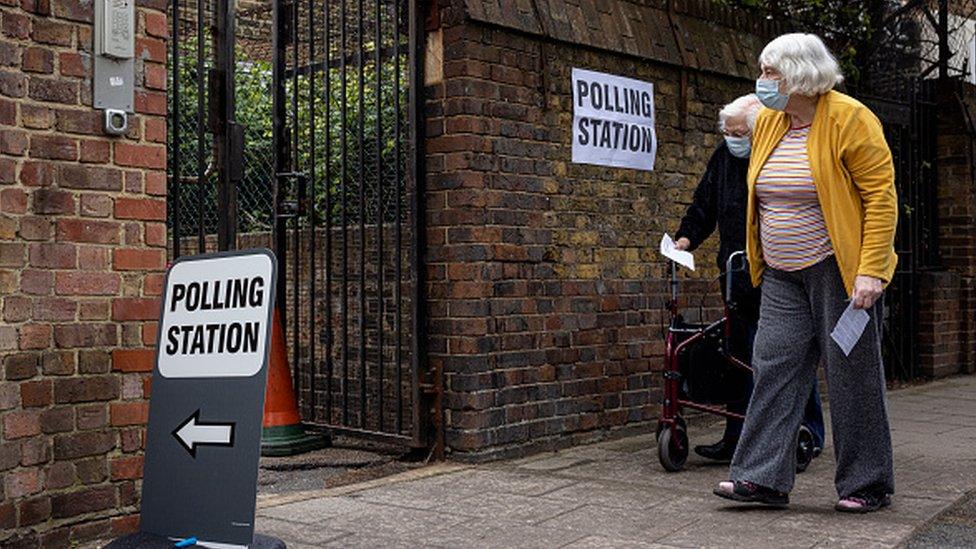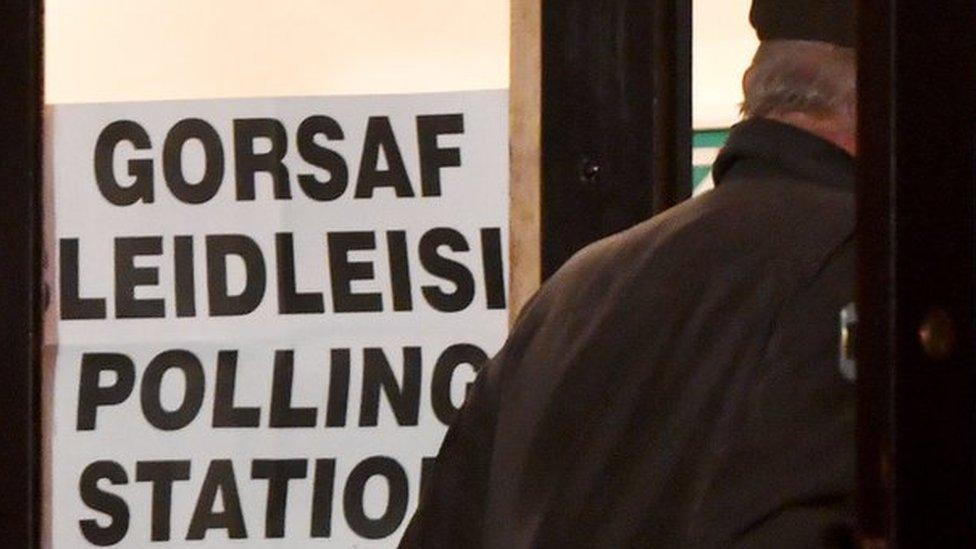Voter ID: Only 1% of eligible voters apply to government scheme
- Published

The government says voter ID checks will prevent fraud, but critics argue the move could depress turnout
The government has ignored calls to pause voter ID plans after new figures reveal only 1% of those without valid documents have signed up to a scheme to allow them to vote.
May's local elections will be the first time - outside of trials - that voters will be required to show photo ID.
The estimated 2m people without a valid form of ID can sign up for a Voter Authority Certificate.
But just 21,300 have applied, external since the scheme was launched last month.
At the moment, people can vote in elections if their name is on the electoral register but they do not have to produce photo ID to prove who they are.
Voters in England, Scotland, Wales and Northern Ireland will be required to show ID at the next general election, widely expected in 2024.
But the change will not apply for local and national elections in Wales and Scotland. Photo ID has been mandatory in Northern Ireland since 2003.
Liberal Democrat MP Helen Morgan told MPs the voter ID scheme was a "thinly-veiled attempt to make it far more difficult for people to vote".
She highlighted research by the Electoral Commission that May's elections "can't be run 'in a fully-secure, accessible and workable manner'" because of what she called the "rushed rollout" of voter ID.
But local government minister Lee Rowley rejected her call to delay voter ID requirements until after 4 May's local elections in England.
He told MPs about 98% of the electorate already have one of the 22 forms of ID - such as a passport or a driving licence - that will be accepted at polling stations.
And, he added, the government was making a "basic, fundamental change to ensure that we protect the integrity of the ballot box".
Voter fraud
Labour claimed the government was "risking widespread disenfranchisement" 72 days before the May elections.
The party's shadow communities minister Alex Norris called on the government to "wake up and act to prevent these voter ID requirements from locking huge numbers of people out of their democracy at the next election".
Labour has previously claimed the plan could reduce turnout at elections and discriminate against marginalised groups.
At the last general election 595 cases of alleged electoral fraud were investigated by the police, according to the Electoral Commission. Of these, four led to a conviction.
But the government said the measure was supported by election observers and was necessary to prevent voter fraud.
Mr Rowley said a "large number" of the estimated 2m who need voter ID "will not have elections in their area this year".
"Secondly, of that group a number will choose not to vote - much as we would like them to do so - will have chosen never to have voted, and we would encourage them to do so," he added.
Related topics
- Published13 September 2021
